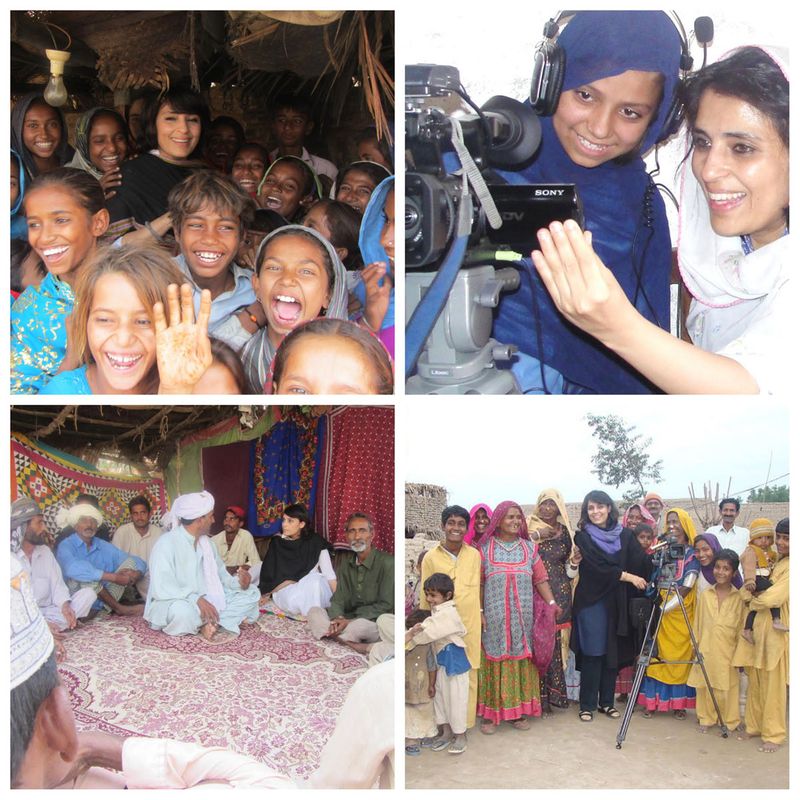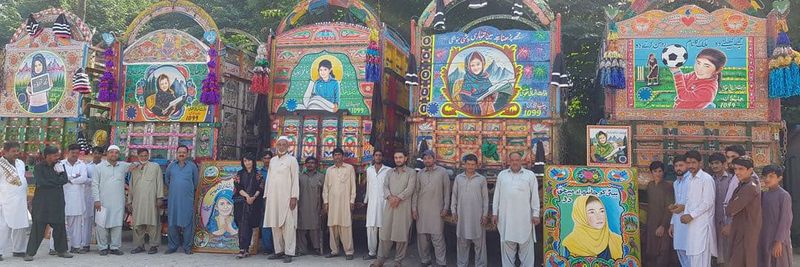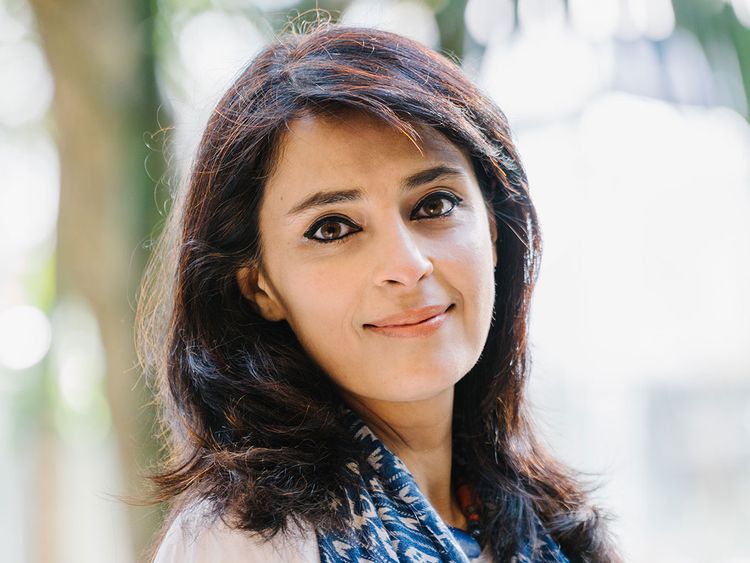The filmmaker’s very special, very personal work is changing lives, one day at a time
The most significant aspect of Samar Minallah Khan’s work for female empowerment is inclusivity. Samar, anthropologist, filmmaker, operates within the system to strip it of its regressive, toxic, harmful dynamics that affect the lives of countless children, teenagers, and adults, especially female. Using various forms of art—filmmaking, painting, and music—Samar, without raising her voice or fists, compels the architects, perpetrators, and enablers of systemic patriarchy to take a second and a third and a sixth and a tenth look at the damage inflicted on the psyche, hearts, and bodies of females, of all ages, across Pakistan.
A restructuring is not a demolition in Samar’s world. Her profound empathy is the keyword for her one-on-one dialogues and, eventually, a collective discourse with all the stakeholders of a particular set-up. Focusing on the betterment of victims and survivors, Samar also ensures, in her work, the inclusion of those who make the rules—parental, communal, societal. Female empowerment in a deeply patriarchal society, roots of which are entrenched in fiercely protected cultural mores, sanctioned at times by misinterpreted injunctions of religion, is not possible if it is turned into a war of sexes, a battle of egos.

Misogyny, one of the rotten foundations of a male-dominated system, cannot and should not be replaced with misandry. Equality of sexes is the only way to be. And that change begins at home before it takes a larger shape. Fully understanding and accepting that no real, long lasting, sustained change is possible without the involvement of all sides, and in particular, of the rule makers of a family, Samar, mother of a daughter, twenty-four, and a son, twenty-nine, ensures that her female empowerment work is inclusive of positive male participation.
In a January 2012 interview to Pakistan’s Newsline, Samar talking about her filmmaking process made a comment that is still relevant, “I’m not plugging an agenda, nor am I out to appease an international audience. My audience is the local people, especially those who appear in the documentaries themselves. Because of this my work is more rewarding.” As a Pakhtun woman, Samar’s work is mostly with people whose language she speaks and whose culture she has a deep personal understanding of. In the same interview she said, “I make documentaries that are culturally sensitive so that they can be screened in the rural areas.”

With degrees in anthropology and development from Quaid-e-Azam University, Islamabad, and Cambridge University, UK, Samar channelized her earlier “angry” stances into constructive rebuilding of narratives, be it through her films or her truck artwork. Her younger years activism and feminism metamorphosed into her passion for doing something about the painful wrongs she saw around her. Her first documentary “Swara—A Bridge Over Troubled Waters”, in 2003, focused on “vani”, an abhorrent social and moral crime, with a cultural sanction, against females.
In 2004, Section 310-A of the Pakistan Penal Code was enacted, stipulating a rigorous punishment for “giving of females in marriage as part of a compromise to settle a dispute between two families or clans; punishment may extend to ten years but shall not be less than three years.”
Samar’s very special, very personal work is changing lives, one day at a time. The several awards she has received, nationally and on global forums, are a sparkling manifestation of the impact and importance of her work.
For advocacy against compensation marriages: Challenging Patriarchal Mindset Award by National Commission of the Status of Women, Government of Pakistan, 2010; Vital Voices Fern Holland Award 2012; Civic Courage Award, Center for Civic Education Pakistan, 2010; Women Have Wings Courage Award 2010; Global Leadership Award, 2015; Perdita Huston Human Rights Award 2010.
For girl child empowerment through truck artwork: Secretary General’s Innovation for Sustainable Development Award 2021, UK; Gold Cube at the ADC Annual Awards, New York; London International Award 2019; Cannes Lions International Festival of Creativity; Silver and eight Bronze trophies, Busan, South Korea.
For documentary films: Best Short Film Nordic International Film Festival 2021; Eva Haller Women Transforming Media Award 2021; Jury Award, Global Voices Film Festival; Best Short Film, Toronto Women International Film Festival 2021; Best Foreign Language Short Film, Moscow-Russian International Film Festival; Female Filmmaker Award, Emberlight International Film Festival 2021; Best Director, The Sofie 7th Annual Awards 2021; Winner, My Hero International Film Festival 2021; Best Film Sport Film Festival, Rotterdam, 2021.
With her work, Samar does not provoke a conflict that widens differences. With her work Samar evokes a dialogue that unites to produce affirmative action.


